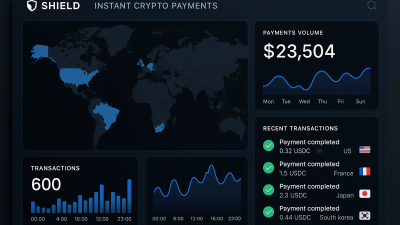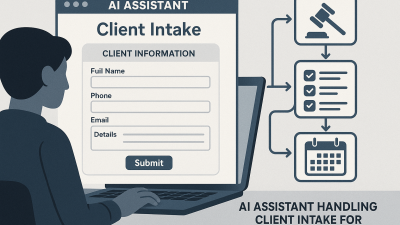The Gen Z Playbook Behind Phoebe Gates and Sophia Kianni’s $8M Fundraise for Phia
In an evolving startup ecosystem, fundraising is no longer just a numbers game—it has become a reflection of societal trends, generational influence, and the creative ways founders connect with their audiences. Phoebe Gates, daughter of tech icon Bill Gates, and climate activist Sophia Kianni have demonstrated this new paradigm in action, raising $8 million for Phia, a climate-focused startup. What makes this story remarkable is not just the amount raised, but the way they leveraged Gen Z strategies—digital-native approaches, authentic storytelling, and socially conscious messaging—to engage investors and supporters alike.
Gen Z, known for their digital fluency and values-driven outlook, is reshaping how startups attract funding. Unlike traditional fundraising, which often prioritizes networks and formal presentations, this new generation emphasizes community, transparency, and purpose. Gates and Kianni’s approach illustrates the power of connecting with people on a personal level, aligning business goals with social impact, and using modern channels like social media, influencer networks, and virtual events to reach a global audience.
This blog delves into the strategies behind Phia’s successful $8M raise, offering a detailed look at the Gen Z playbook in action. Beyond numbers, it explores the societal and human implications of this approach, highlighting how emerging leaders are redefining what it means to build and fund a mission-driven enterprise in the 21st century.
Understanding the Gen Z Fundraising Mindset
For decades, venture capital was largely dominated by established networks and formulaic pitch decks. Gen Z, however, challenges these conventions by blending authenticity, purpose, and technology. Gates and Kianni exemplified this mindset by focusing on impact, narrative, and engagement rather than simply numbers.
Research shows that Gen Z values companies with a clear social or environmental mission. According to Deloitte’s 2023 Global Gen Z survey, over 70% of Gen Z investors consider a company’s societal impact alongside financial metrics. Phia’s mission—addressing climate change through innovative solutions—resonated strongly with both young and seasoned investors.
In practice, Gates and Kianni’s fundraising involved more than investor meetings. They leveraged social media campaigns, virtual town halls, and interactive online presentations, allowing stakeholders to witness the company’s mission firsthand. This approach aligns with Gen Z’s preference for immersive experiences and transparent communication, showing that a fundraising strategy rooted in human connection can be just as compelling as financial projections.
Strategic Storytelling and Personal Branding
A key component of Phia’s fundraising success was the strategic storytelling employed by Gates and Kianni. Both founders have strong personal brands—Gates as a philanthropic leader and Kianni as a climate activist—but they elevated these identities by connecting them directly to Phia’s mission.
Storytelling in fundraising is more than a marketing tactic; it humanizes the business and creates emotional resonance. Gates and Kianni shared personal narratives, demonstrating why climate action matters to them personally. These stories were shared across multiple channels—Instagram, LinkedIn, and TikTok—where Gen Z investors and supporters are most active.
Case studies in other Gen Z-led campaigns reinforce this strategy. For instance, companies like Allbirds and Impossible Foods leveraged founder stories and social impact messaging to attract early-stage funding and media attention. By integrating authenticity, visual storytelling, and social engagement, Gates and Kianni positioned Phia as a purpose-driven brand that investors could trust and support.
Leveraging Digital Networks and Social Media
Social media is the backbone of Gen Z fundraising, offering unprecedented access to audiences and communities. Gates and Kianni used these platforms strategically, creating content that educated, inspired, and engaged. From TikTok explainer videos on Phia’s technology to Instagram Live Q&A sessions, every interaction was designed to foster trust and transparency.
Beyond organic engagement, the duo tapped into influencer networks and peer communities. Kianni’s existing climate activist network provided credibility and amplification, while Gates’ tech and philanthropic connections offered strategic introductions. This multi-channel approach allowed Phia to reach a diverse audience, including younger investors who are increasingly making funding decisions online.
Data supports this strategy: a 2024 report by PitchBook found that startups using social media-driven fundraising campaigns saw a 35% higher likelihood of reaching seed-stage funding goals compared to traditional outreach. By combining digital fluency with community engagement, Gates and Kianni transformed fundraising from a transactional process into a participatory movement.
Community-Driven Engagement and Crowdfunding Elements
While Phia’s $8M raise was largely through venture capital, the founders incorporated elements of community-driven engagement typical of crowdfunding. This included public webinars, interactive feedback sessions, and open-source sharing of climate research initiatives.
Gen Z investors are drawn to participatory opportunities where they feel their voice matters. By opening channels for engagement, Gates and Kianni empowered supporters to become advocates, creating a ripple effect that extended beyond formal investors.
An illustrative example is how Kianni hosted virtual forums where early supporters could ask questions, provide feedback, and even suggest features for Phia’s solutions. This not only strengthened investor confidence but also reinforced a culture of inclusivity and co-creation, hallmarks of Gen Z-led ventures.
Data-Driven Decision Making and Transparency
Another defining element of the Gen Z playbook is a reliance on data-driven decision making. Gates and Kianni emphasized transparency by sharing progress metrics, sustainability benchmarks, and projections in real time.
For instance, Phia provided detailed reports on projected carbon reduction, expected impact per investment dollar, and timeline milestones. By making data accessible, the founders reduced uncertainty, built credibility, and allowed investors to make informed decisions. This approach reflects Gen Z’s preference for measurable outcomes and accountability in both financial and social impact spheres.
Research indicates that transparent, metrics-driven communication increases investor trust. According to a 2023 EY report, 68% of young investors are more likely to fund startups that provide quantifiable social impact data. Gates and Kianni’s approach exemplifies this principle, demonstrating that transparency is not only ethical but also strategic.
Lessons for Future Founders and Startups
Phia’s $8M raise provides a blueprint for other startups looking to engage Gen Z investors. Key lessons include:
-
Prioritize Authenticity: Investors respond to founders who communicate their mission with genuine passion.
-
Embrace Digital Channels: Social media and virtual interactions can amplify reach and credibility.
-
Build Community: Engaging stakeholders as active participants strengthens both funding prospects and brand loyalty.
-
Leverage Data and Transparency: Clear metrics and open communication foster trust and informed decision-making.
-
Integrate Social Impact: Aligning business objectives with societal benefits resonates with values-driven investors.
By incorporating these strategies, founders can bridge generational gaps, attract diverse funding sources, and create ventures that are both profitable and impactful. Gates and Kianni’s success illustrates that fundraising is evolving from traditional boardroom pitches to dynamic, digitally enabled, and human-centric experiences.
Phoebe Gates and Sophia Kianni’s $8M fundraise for Phia is more than a financial milestone; it represents a shift in how the next generation of founders and investors engage with purpose-driven ventures. By leveraging Gen Z strategies—authentic storytelling, social media engagement, community participation, and transparent metrics—they demonstrated that fundraising is no longer just about numbers, but about creating meaningful connections and measurable impact.
This approach carries broader societal implications. Startups that integrate purpose with performance are better positioned to inspire communities, influence policy, and contribute to sustainable change. Gates and Kianni’s success shows that when young leaders combine digital fluency with human-centered strategies, they can mobilize resources at unprecedented scales, reshaping the startup ecosystem.
Ultimately, the Gen Z playbook behind Phia’s fundraise is a model for future founders: prioritize authenticity, embrace technology, and center your mission on societal impact. In doing so, startups can secure funding, build loyal communities, and drive meaningful change in a world increasingly defined by values-driven innovation.
FAQs
1. What is Phia’s mission?
Phia is a climate-focused startup aiming to develop innovative solutions to combat climate change.
2. How much funding did Phia raise?
Phia raised $8 million in its latest fundraising round, primarily from venture capital investors.
3. Who are Phoebe Gates and Sophia Kianni?
Phoebe Gates is a philanthropically minded entrepreneur, and Sophia Kianni is a climate activist known for mobilizing youth-led environmental initiatives.
4. What strategies did they use to raise funds?
They used Gen Z-focused approaches, including authentic storytelling, social media engagement, community-driven interactions, and data transparency.
5. Why is Gen Z important in fundraising?
Gen Z investors value transparency, purpose, and social impact, influencing how startups communicate and structure their funding strategies.
6. Can other startups replicate this model?
Yes, startups that prioritize authenticity, digital engagement, and community participation can replicate this approach to attract values-driven investors.
7. What is the long-term impact of this approach?
It fosters a new ecosystem of purpose-driven entrepreneurship, encouraging ventures that are both profitable and socially responsible.
Stay updated on innovative fundraising strategies and emerging Gen Z-led startups. Subscribe to our newsletter for expert insights, case studies, and actionable advice to help your venture thrive.
Note: Logos and brand names are the property of their respective owners. This image is for illustrative purposes only and does not imply endorsement by the mentioned companies.



